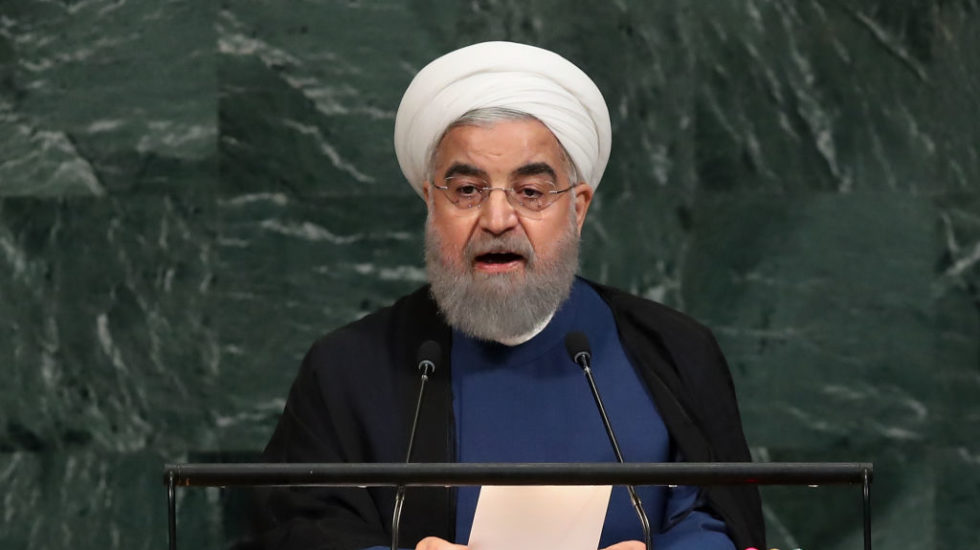On Tuesday afternoon, President Trump announced that he plans to withdraw the U.S. from the landmark 2015 nuclear deal with Iran. This means that the government will reimpose sanctions on the Islamic Republic’s nuclear program, which were set aside under the agreement negotiated by President Obama. According to The Washington Post, the U.S is the only country in the agreement to pull out, leaving Iran and six other nations to grapple with the damage. If you want to understand the original deal and what what will happen now, The New York Times has an excellent explainer here.
“This was a horrible one-sided deal that should have never, ever been made,” said Trump at the White House press conference. “It didn’t bring calm, it didn’t bring peace, and it never will.”
Pulling out of the Iran deal is an insanely stupid idea. Everyone who retweets agrees. Like, one of the dumbest ideas Trump’s ever had. And he wanted to partner on cybersecurity with Russia who attacks our infrastructure and democracy daily. It’s dumber. Much dumber. #TrumpResign
— Scott Dworkin (@funder) May 8, 2018
We’re still not sure of what Trump has in mind when it comes to penalties on Iran. The Post speculates that it could mean recommencing all sanctions relating to their nuclear program, probably the most drastic action the president could take. Or, we might see a new set of general penalties directed at Iran’s banks. Although Trump had previously called the nuclear deal weak and poorly negotiated, The Wall Street Journal says that he is “ready, willing and able” to negotiate a “new and lasting deal” with Iran. “Great things can happen for Iran, and great things can happen for the peace and stability that we all want,” he said. We’ll see what becomes of that idea.
An unnerving amount of conservative commentary I’ve seen on the Iran deal is laser-focused on how ripping up the deal really sticks it to John Kerry and assorted Obama staffers. #priorities
— Chris Hayes (@chrislhayes) May 8, 2018
Now that Trump has announced America’s exit from the nuclear deal, many European nations are bracing for a clash over what should happen next. The New York Times suggests the possibility that it will also lead to increased tensions with Russia and China, who are key players in the agreement.
Under the new financial sanctions, all European companies will have between 90 and 180 days to cease operations in Iran, or risk crossing the U.S banking system. They are also compelled to reduce their oil imports from the Islamic Republic considerably. “France, Germany and the United Kingdom regret the U.S. decision to get out of the Iranian nuclear deal,” said French President Emmanuel Macron. “The international regime against nuclear proliferation is at stake.”
Trump is violating a deal that could keep us from war with Iran while the NRA is naming a president who illegally sold arms to them. The conservative right is so illogical and contradictory it’s putting us in grave danger.
— Jared Yates Sexton (@JYSexton) May 8, 2018
